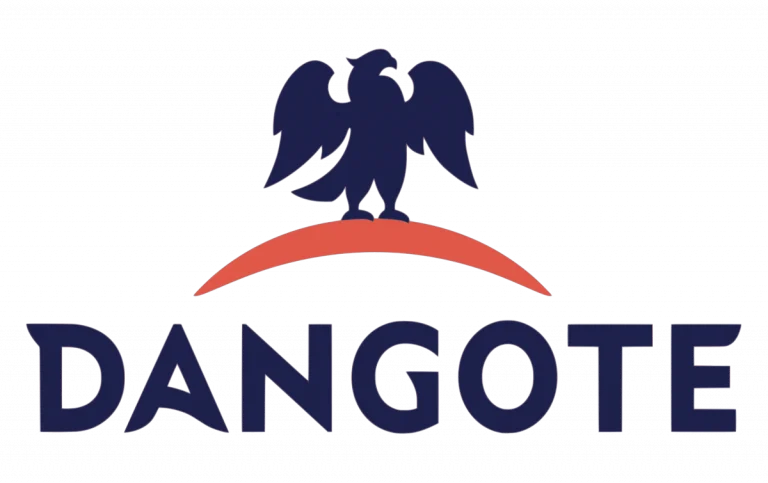Business
How To Set Up A Crypto Wallet

In a world where digital currencies are fast gaining relevance and acceptance for daily income earning in digital trade and Web 3 evolution is a mainstay, it is important to dissect certain aspects that could continually yield money making opportunities for people on the internet.
Trading and investing in crypto currencies is a significant one.
This article explores the short steps a trader could follow in order to set up a crypto wallet and apply precautionary/restrictive steps to navigate potential risks.
1. Choose the right type of wallet for your needs
Making the right choice for the type of wallet that suits your needs is he first important step in setting up a crypto wallet. This should be done with the consideration of the risks attached, convenience and comfort.
READ ALSO: US Blocks Nigerian’s Cryptocurrency Fraud, Imposes $50,000 Fine
For easy use and plan to make transactions often, software wallets is highly recommended due to its simple interface and low fees. However, if you care more about security, especially if you own a lot of cryptocurrencies, a hardware wallet is suitable for that.
2. Creating your crypto wallet
After making the choice of your wallet provider, the next step is to create your crypto wallet by going on their official website or downloading their app from a trusted and risk free app store. You will be required to set up your account with your personal information such as email address, phone number, and sometimes a form of verification to prove your identity.
Ensure you are on a secure internet connection while working on this and check that the website or app is genuine before giving any personal details.
READ ALSO: Nigerian Lawmakers Approve Tinubu Tax Reform Bills
3. Secure your wallet with strong passwords and backup
The next thing after setting your crypto wallet account is to apply a few security features to it. This could be creating a strong and unique password for it–not used for other social accounts.
Similarly, good wallets provide two-factor authentication (2FA) for extra security. When you turn on 2FA, you add another step to log in. This often requires a code sent to your phone or email.
4. Deposit your Cryptocurrency to your wallet
When you have fully set up your wallet and applied security features to it, you can then deposit cryptocurrencies to it. The first thing to do is to find your wallet address– a special mix of letters and numbers that shows where your wallet is on the blockchain. This is quite similar to your bank account for cryptocurrencies.
READ ALSO: Crypto Firm Breaks Silence On Binance Executive
If you want to deposit funds in your wallet, start a transfer from an exchange or another wallet where you keep your cryptocurrencies. Then, you must be very careful to choose the right cryptocurrency and enter the correct wallet address.
5. Transact with your crypto wallet
Having completed the aforementioned steps and procedures, you can now send, receive, or manage your digital assets with cryptocurrencies in your wallet.
If you want to complete a transaction, just enter the recipient’s wallet address, the amount to send, and confirm the details.
Business
NNPCL Announces Restoration Of Escravos-Lagos Pipeline

The Nigerian National Petroleum Company Limited (NNPCL) has announced the complete restoration of the Escravos-Lagos Pipeline System (ELPS) in Warri, Delta State, following the recent explosion on the asset.
The chief corporate communications officer (CCCO) of the nation’s oil company, Andy Odeh, in a statement, said that the pipeline is fully operational, reiterating the company’s resilience and commitment to energy security.
“NNPC Limited is pleased to announce the successful restoration of the Escravos-Lagos Pipeline System (ELPS) in Warri, Delta State.
READ ALSO:Fuel Price Cut: NNPCL GCEO Ojulari Reveals Biggest Beneficiaries
“Following the unexpected explosion on December 10, 2025, we immediately activated our emergency response, deployed coordinated containment measures, and worked tirelessly with multidisciplinary teams to ensure the damaged section was repaired, pressure-tested, and safely recommissioned.
“Today, the pipeline is fully operational, reaffirming our resilience and commitment to energy security. This achievement was made possible through the unwavering support of our host communities, the guidance of regulators, the vigilance of security agencies, and the dedication of our partners and staff.
“Together, we turned a challenging moment into a success story, restoring operations in record time while upholding the highest standards of safety and environmental stewardship.
“As we move forward, NNPC Limited remains steadfast in its pledge to protect our environment, safeguard our communities, and maintain the integrity and reliability of our assets. Thank you for your trust as we continue to power progress for Nigeria and beyond,” the statement read.
Business
Dangote Unveils 10-day Credit Facility For Petrol Station Owners

The Dangote Group has announced a 10-day credit facility backed by a bank guarantee for petrol station owners and dealers, alongside free direct delivery and other incentives, as part of a new supply arrangement.
The company disclosed this in a statement posted on its official X handle on Tuesday, inviting petrol station operators across the country to register to benefit from the offer.
According to the statement, participating dealers will enjoy “a 10-day credit facility backed by a bank guarantee,” with a minimum order requirement of 5,000 litres.
“Our free direct delivery service will commence soon,” the group said, adding that the offer is open to “all petrol station owners and dealers.”
READ ALSO:Dangote Sugar Announces South New CEO
The Dangote Group further called on operators to register their stations to access the supply arrangement.
“Register your petrol stations today to benefit from our competitive gantry price,” the statement read.
The company also disclosed that petrol supplied under the arrangement will be sold at a gantry price of ₦699 per litre.
For enquiries, the group provided the following contact numbers: 0802-347-0470, 0809-324-7070, 0809-324-7071 and 0203.
READ ALSO:Dangote Refinery Dispute: PENGASSAN Suspends Strike After FG Intervention
The announcement follows a recent petrol price adjustment by the Dangote Petroleum Refinery.
The PUNCH earlier reported that the refinery reduced its ex-depot petrol price from ₦828 to ₦699 per litre, representing a ₦129 cut or a 15.58 per cent reduction.
An official of the refinery, who spoke to PUNCH Online on condition of anonymity, confirmed the adjustment, saying, “The refinery has reduced petrol gantry price to ₦699 per litre.”
The new price reportedly took effect on December 11, 2025, marking the 20th petrol price adjustment announced by the refinery this year.
Business
JUST IN: Otedola Sells Shares In Geregu Power For N1trn

Billionaire businessman, Femi Otedola, has sold his majority stake in Geregu Power Plc for N1.088 trillion in a deal financed by a consortium of banks led by Zenith Bank Plc.
The Nigerian Exchange, NGX, made this announcement on Monday.
Otedola’s Amperion Power Distribution Company Ltd reportedly held nearly 80 percent of the power generating company.
READ ALSO:N200b Agric Credit Dispute: Appeal Court Slams NAIC, Upholds First Bank Victory
With this new development, Otedola, Chairman of First Holdco Ltd, parent company of First Bank of Nigeria Plc, will reportedly now concentrate on expanding his interest in the Nigerian banking sector, although he still retains some shares in Geregu.
Otedola is said to currently own 17.01 percent of First Bank — its single largest shareholder since the bank was established in 1894.

 News2 days ago
News2 days agoBREAKING: Anthony Joshua Involved In Road Accident

 News3 days ago
News3 days agoEx-Edo Gov Obaseki Reacts As His Cousin Is Beaten, Stripped

 Politics2 days ago
Politics2 days agoYou’re Not 001 – Wike Rubbishes Claims Of Fubara Being APC Leader In Rivers

 Politics2 days ago
Politics2 days agoWike Speaks On Defecting To APC

 Politics2 days ago
Politics2 days agoJUST IN: INEC Excludes PDP From Ekiti Governorship Election

 Metro3 days ago
Metro3 days agoObaseki Beaten, Stripped In Edo

 News2 days ago
News2 days agoNAF Neutralizes Bandits At Turba Hill, Kachalla Dogo Sule Camps

 Entertainment5 days ago
Entertainment5 days agoI’ve Stopped Impregnating Women Anyhow – 2Baba

 News2 days ago
News2 days agoDoris Ogala: How Pastor Chris Knelt Before Church, Begged For Forgiveness [Video]

 Business4 days ago
Business4 days agoNaira Records Massive Appreciation Against US Dollar Into Christmas Holidays






























